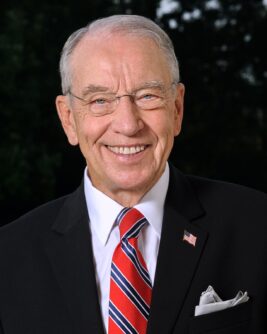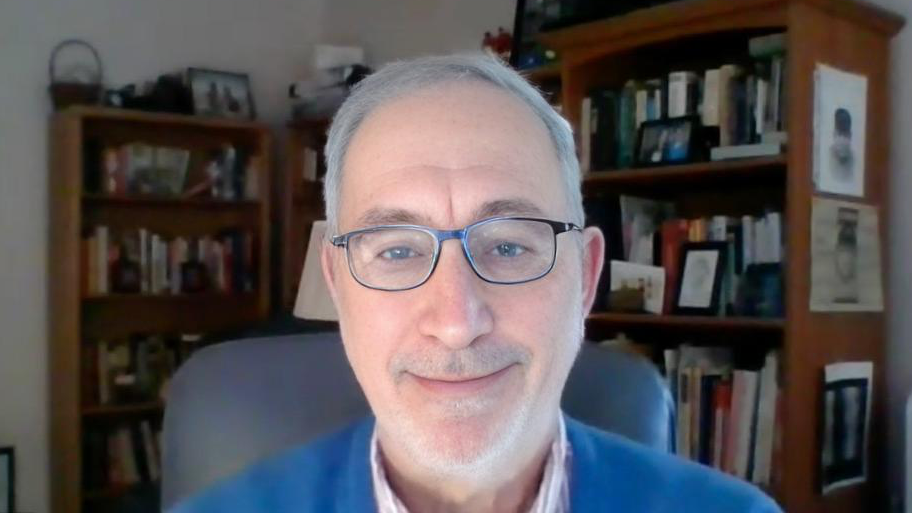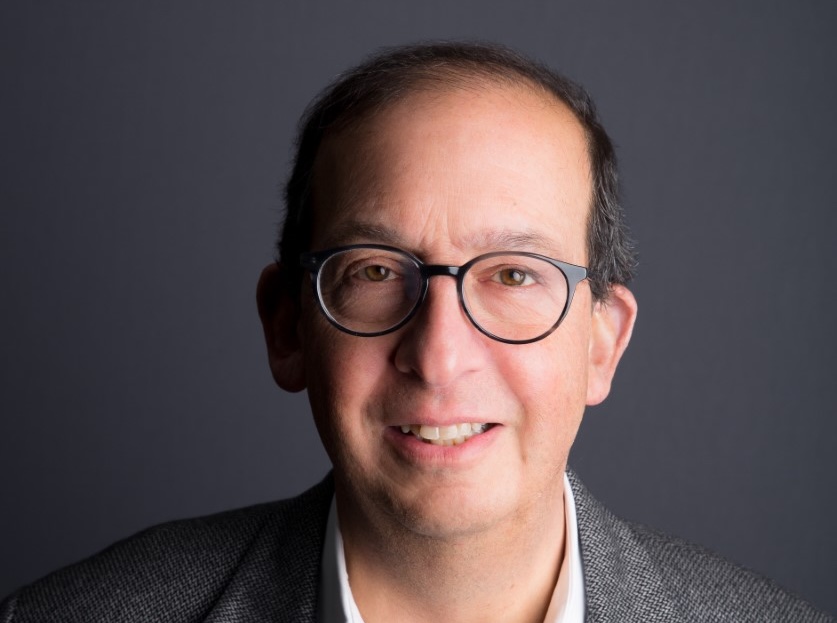A former top tax aide to Sen. Charles Grassley talks to Michael E. Hartmann about his background, what it’s like to work for Grassley and on Capitol Hill, and the state of the nonprofit sector in general and philanthropy in particular.
Dean Zerbe is the national managing director of alliantgroup, a tax consulting firm headquartered in Washington, D.C., and a partner at Zerbe, Miller, Fingeret, Frank & Jadav, LLP, a Houston-based law firm specializing in working with tax whistleblowers, as well as on tax litigation.
From 2001 to 2008, he was senior counsel and tax counsel to the Chairman of the Senate Finance Committee—Sen. Charles Grassley, Republican of Iowa, who has had longtime interest in aggressively defending and promoting the integrity of the charitable sector with careful oversight of the tax laws related to it.
Dean worked quite closely on the 2006 IRS-whistleblower law, which created an award program for tax whistleblowers. He has represented a number of tax whistleblowers—including the most-successful whistleblower in American history, Bradley Birkenfeld, who was awarded $104 million when he blew the whistle to the IRS about tax fraud by UBS. The award to Birkenfeld is the largest amount to any individual whistleblower by the United States government.
During his tenure on Capitol Hill with Grassley, Zerbe also worked on nearly every major piece of tax-reform legislation, including their provisions having to do with the nonprofit sector. Since then, the affable Omaha-born barrister has remained a recognized authority on tax policy whose advice and counsel is still relied upon by all of those interested in policymaking and its implementation.
Below is the first of two parts of an edited transcript of an enjoyable discussion that Zerbe was kind enough to have with me last month. The second part—in which he talks about the 2017 tax-reform bill, the recent harsh critiques of philanthropy, and how he thinks the nonprofit sector should approach any future reform legislation—is here.
***
Hartmann: Where is home for you?
Zerbe: Home now is Arlington [Va.] in the greater D.C. area. Kind of like a lot of folks who came to D.C., I never thought that would be home, but it’s home now.
I was born in Omaha and then raised and California, in Santa Monica, then went to school at NYU, and then came here.
Hartmann: What kind of schools did you go to as a kid?
Zerbe: I went to public schools. I actually am the oddity. I left high school at 15 and then took the GED, then went to junior college for a year and transferred to NYU. I went to study film there. It is my understanding that I am the only person that got a film degree from NYU and then later went back and got my LLM in tax. I’d gone to George Mason for law school at night in between all that.
Hartmann: Where was the junior college?
Zerbe: That was at Santa Monica College. I went there when I was 15, did that for a year, and then transferred to NYU after that. I don’t know quite what I was thinking. I wanted to go to film school. I had been a pianist as a child, but that kind of went to the side. I don’t know what possessed me. Instead of going to USC or UCLA, which were perfectly fine film schools, I had in my mind that I really needed to go to New York. I’d never even been to New York, but I said, Boy, I got to go to New York.
I was a big, big fan of Martin Scorsese at the time, so I think that was part of the draw. Raging Bull had just come out and I thought that was a great film, so off I went.
Hartmann: Did you ever produce a film?
Zerbe: I made films while film school, yes—but I don’t think anything particularly memorable. Then when I was actually practicing law in Nevada after my LLM from NYU, I did do a couple of films there—again, nothing to write home about. I did a film about the Las Vegas wedding chapel, which was kind of fun. I think no one’s weeping that it’s not widely available, but I did do a little bit of dabbling.
Hartmann: Oh, come on. You must still have a film in you.
Zerbe: [Laughter.] I don’t know. Not any film that anyone wants to see. Unless there’s this burning interest in romantic comedies involving the Joint Committee on Taxation, Hollywood’s probably not trying to find my number. I like seeing them now, but I don’t toss and turn about any films that I desperately need to make now.
Hartmann: How does one get from film production to tax law?
Zerbe: It’s a good question. So I graduated from NYU with my film degree when I was 19. NYU was very different back then. It was a much more of a tri-state-area school. Now, it’s all very fancy. The film school was very much just kids who loved films. Now, it’s more of a finishing school almost.
The problem back then is film was just unbelievably expensive. To make a film would cost a fellow a hundred, two hundred thousand dollars. Well, that for me was just a king’s ransom. That was just an unbelievable amount of money.
I was too young. I probably should not have gone to film school so young. I didn’t really have an interest in just working in the industry, if you will. I thought, Well, if I’m going to do film, I want to make films. Anyways, that just wasn’t a door that was open for me, and again, I don’t think the world’s weeping because of my lost talent there.
I did have a lot of family in D.C. in the Foreign Service and a brother that was in public policy and doing campaigns, so I got drawn to come down to D.C. I was fortunate to get picked up to work for a congressman from Oregon, Denny Smith, and worked for him and another Congressman, Richard Baker from Louisiana.
Then I was on the George H. W. Bush campaign in a very minor role, given my age, and was in the first Bush administration over at DoD and then later at a shop that no one had ever heard of before, but now is quite well known—I was over at HHS in the Office of Refugee Resettlement, dealing with all of the refugees that now everyone’s very well aware of.
I’ve had actually had connections with Charles Grassley all the way back to working for Denny Smith. Smith had done a lot of oversight on the military. He had been a fighter pilot in Vietnam and was a strong conservative with a big interest in making sure that weapons worked and that we weren’t wasting money in defense. He had often teamed up with Grassley, so I knew the Senator a bit and knew his staff quite a bit.
After George H. W. Bush didn’t win re-election in 1992, I went over and started working for Grassley. This is when I went to law school at night at GMU. I later commuted up to NYU to get my LLM. It was a nine-month program. I was 32 when I got that degree.
After that, I went and practiced law in Nevada, which is a great place to practice criminal and civil tax litigation. That was my interest. There’s a lot of people in Nevada who don’t think they have to pay tax. That was a great experience.
Then Grassley became chairman of the Finance Committee in 2001 after the 2000 elections, and I was fortunate. He asked me to come back and I was probably one of the four tax counsels on the committee and worked for him through 2008.
Now, I’m with alliantgroup and I also have a law firm that I do work for—Zerbe, Miller, Fingeret. I do tax-litigation work, but really primarily I do tax-whistleblower work.
Aggressive, empowered
Hartmann: Tell me what it’s like to work for Senator Grassley.
Zerbe: He is great. I’ve worked for him four times now. I’ve kind of gone back and forth and back and forth with him and who knows, maybe a fifth time. We’ll see.

He runs every morning, and he’s still got all the energy in the world. He’s just terrific. He hangs the moon. He’s just a very straightforward, honest fellow—always waking up trying to do the right thing by the American people.
I would say he’s terrific in that he wants his staff to be aggressive. I think his mindset’s the right one. A lot of Senators and Members, their mindset is that staff is there to kind of be around a queen bee, if you will, and make sure the world goes well for them. That’s not him.
There was a Senator once on the Finance Committee, when Grassley was chair, and they came in and they had a briefing book—it was, honest to God, like a phone book—and bless the Senator’s heart, he read it and was diligent, and everything like that. Grassley turned to me and said, humorously, “Why aren’t you guys doing that for me?” I said we’d never get our work done if we spent all our time doing that. He laughed, knowingly, very much enjoying the moment.
He wanted his staff to be intelligently aggressive, to be thinking—not necessarily to be moving at his pace, not to be going as fast as he can go, but to be moving forward.
Because he’s who he is, he’s got a number of people that have worked for him for years and years and years. They’re people who know how he thinks. I think there’s real benefit from that. He lets them move, in line with what he wants. Empower is the word; he empowers his staff.
He wants staff that know how he views things, that share his outlook, and he wants them to go forward. That’s a good place to be. He’s very supportive of his staff. He protects his staff. It’s just a wonderful place to be, and it’s why he keeps them forever. It’s why—myself included—a lot of the staff come back. It’s such a good atmosphere.
He believes in his oversight role, but he also believes in legislating. You can see it now, where he’s constantly thinking, What can we get through? What can we get passed?
I look back at the Bush years—this is 2001 to 2008—where he really got through, working with [Sen. Max] Baucus, so much of the Bush the tax agenda in particular, but also very many other things. This was because his integrity was just without parallel. The Members could trust him. He knew how to listen to Members.
People forget, but we had a 50-50 committee in 2001 when we came in and you’ve got folks like [Sen. Jim] Jeffords and [Sen. Arlen] Spector and [Sen. Olympia] Snowe and [Sen. Susan] Collins—it was a lot of moderates in a very tight Senate. His natural instinct is to work with people across the board, and it helps. It can get things through. He listens to them, and to the folks who are sort of the true believers, but I think he always recognized if we’re going to get something done, you need to listen to everybody and can’t just go the “amen corner.”
I learned a lot from that and seeing him in action, trying to work in good faith with everybody across the board. It ended up being very successful. He’s very good at that.
Now, Grassley’s a pain in the keister to just about everybody, too. The charities just thought it was all about them, and I’m like, Good Lord, get in line. He’s got the FBI, HHS, there’s no end to people who are mad at him—the Army, the Pentagon.
I can remember when I was working for him during some of the Bush years and they were fit to be tied that we were holding up nominations or asking hard questions. They didn’t understand, well, really the separation of powers. There’d be tense moments, but we needed to protect the rights of not only the Senator as chairman, but the Senate as an institution. We’d say, Look, you’ve got to answer these questions. We’d say Baucus has a right to an answer here.
Hartmann: So I’m speaking to you from Milwaukee, part of the Midwest—
Zerbe: Oh, good for you!
Hartmann: Sometimes, I think I sense in Senator Grassley a little Midwestern populism. Is that fair?
Zerbe: I think you’ve got that exactly right. That’s what people never understand. There’s a fair amount of prairie populist in him. That’s exactly right. He’s got a real populism streak in him, yes.
Here’s a guy who worked at the plant. He was, I think, a foreman at a machine plant who was just shy of getting his doctorate. I think his thesis was on something like 19th Century European agriculture. We were once talking about the impact of Midwestern corn and wheat and cattle on the European aristocracy. He could go on and on.
He’s very bright. He’s very hedgehog-like. He understands basic principles, which hold him very well. I’ll give you an example. We had a floor discussion about illegal immigrants who file tax forms and the question was whether they deserve a refund under our tax laws or should we just keep their money? People can have their views, and that’s fine. For him, he always said people should pay the taxes they owe and not a penny more or a penny less, and that should apply to these folks.
It was a straight cut through an otherwise-knotty issue. Again, people can have their views, but I just thought it was a good example of how him being principled just really helped, as opposed to some of the Members—who can think and think and think, and then they think about how’s it going to play here or what are people going to think there? It can drive you to distraction. He just wanted to go to and rely on basics and move forward.
I think you see a lot of that in his charitable oversight. If you really think about what the core of him looking at the charities was and is about, it’s what are the charities doing that’s charitable? What are they doing to justify this very-significant tax break that they get? How’s that going?
When you look at all the oversight, it never really strayed that far from those points. What are we getting? What’s the bang for the buck? What’s the value that we’re getting?
It’s the “grandmother test” that you would invoke. Can you explain to your grandmother and have her think, Yeah, that’s a charitable activity—where Grandma will say, Sure, that makes sense, we’re helping these people. As opposed to, Wait, what are we doing, what’s going on here?
Hartmann: Sounds like you might miss the Senate, like you’d consider going back.
Zerbe: I go back and forth. I am very fortunate with the work I have now. It’s very enjoyable. It’s kind of fun. I get to do the whistleblower work, and that’s a wild ride every day, and then the alliantgroup has been very fun to be part of. It was about 100 people when I started. Now, it’s around 900 to 1,000 people. I don’t want to make it sound like I’m the guy that that made that all happen, but it’s been fun to be part of a big, growing group that’s dedicated to helping small and medium businesses here in this country. That’s been a lot of fun. I have two small children and I get to spend time with them, as well, too.
The Senate is a lot of grind work. I worked hard. I remember my immediate superior was a guy named Mark Prater, who was the chief tax counsel. We’d be leaving at midnight and he’d still be there until two in the morning. It’s a lot of hard work that these folks are putting in.
It is enjoyable, though. I don’t know if I could quite be part of it the way it all goes now, with people tweeting at you all time and so forth. Folks who are up there whom I respect a lot, they go along with it.
But, yeah, there are certain things you could do and these could be exciting times. There are always thinks on your to-do list and you don’t want to later think, Why didn’t we look at this?
There’s lots of good folks out there doing good work, and I still talk to them a lot. I still feel I can give folks ideas or thoughts on areas they might want to look at. I’m pleased that the good work continues and am always happy to give them my two cents on some of the larger issues.
Advocacy, warehousing, and a voice
Hartmann: Well, can we get your two cents on some of the larger issues? Is the nonprofit sector, and philanthropy as part of it, changing? If so, how and why?
Zerbe: With all humility, you guys at The Giving Review follow it more closely, but let me try. First, it will be very interesting to see what the continuing response from the charitable community is to the coronavirus. I think this is really an opportunity for them to show their role, their responsibilities. We often hear from private foundations that they’re saving for a rainy day. Okay. Well, it’s raining.
Otherwise, I see a lot of charities are doing terrific work and that’s great. Now, I’ve been on the board of a couple of charities, and I’ve seen firsthand the great work that they do. Quite frankly, I’ve had an enormous appreciation for the work of so many of the board members and what they do. I mean that sincerely. I’m in awe of what they’re able to accomplish in good faith across the board.
In the private-foundation area, it seems—not all of them, obviously—but there seems more and more of a view toward, Well, we’re not going to buy the blankets for the Salvation Army, we’re not going to be the ones actually pulling the wagon in terms of helping the poor or what have you. What we’re going to do is instead make the trumpet calls to support advocacy and promotion of a government solution.

In a sense, you’ve got these wealthy folks with big tax breaks out there advocating for more government spending that’s going to be paid for by taxing the middle class and other folks to pay for it.
It’s not, We’re going to be funding this charitable activity to help the poor, we’re going to make this happen. It’s, We’re going to do a pilot program. Is it scalable? Well, I don’t know. We’re just going to do the one pilot program and then point to it and say, You, government, you should take this over at 10 times, 20, or whatever times the cost, and away you go. I see that as a concern.
The growth of the donor-advised funds is also a good example where there’s such a gap between what the Hill understands about our charities versus what’s actually going on. Nothing is a better example than that. I mean, if you told a member, Hey, name me the top three charities, I can assure you they’d probably say, Well, Goodwill, United Way, and the Salvation Army. Those would be pretty good guesses.
But we know it’s Schwab, Fidelity, and Vanguard that are up there. You’d knock Members over with a feather when you tell them that that those are among biggest charitable recipients.
They’ve skyrocketed in growth, they’re also seeing a huge growth in in-kind donations at these institutions—things like closely held stock, things they never did when I was looking at this. That has raised troubling tax-administration and other questions, too.
More importantly, overall, there’s a huge increase of what I’ll call the warehousing of money—where you’ve just got money sitting in endowments, like at Harvard. We’re all being reminded of how big Harvard’s endowment is right now.
With the endowments, with donor-advised funds, with private foundations, our country always has needs and the world has needs—particularly at a time like this, they really have needs—that they can help meet. I think the Hill’s a little bit more alive to all of this.
What are we really doing to try getting more of that money into the hands of what I call working charities—charities that are actually helping folks? I think that’s the big question, along with the movement more into advocacy.
Hartmann: Well, those are two good, pretty big cents. Maybe got another penny or two?
Zerbe: I think the voice for the charities isn’t there as much anymore. I think you had kind of a high-water mark before. I always think of what Diana Aviv did with Independent Sector. Charities had a real presence there that was defined and known.
Again, you all know better than I do. I don’t get a sense that the Hill feels that there’s somebody that they can talk to that’s truly representative of the charities. It reminds me of a little bit of—I guess I’m going to butcher it—but Henry Kissinger’s line about Europe: Well, I’ll talk to Europe—who do I call if I want to speak to Europe? There just really isn’t someone that that I feel can speak for the charitable community.
So those would be three things that come to my mind.
***
The conversation continues in Part 2 of 2 here.



